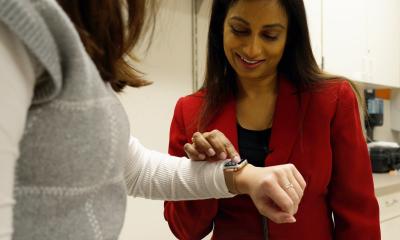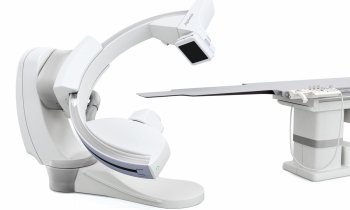Image source: Unspalash/bruce mars
News • Presented at SAC cardiology congress
App reminds heart patients to take their pills
Heart patients using a smartphone app reminder are more likely to take their medication than those who receive written instructions, according to a study presented at the 45th Argentine Congress of Cardiology (SAC 2019) in Buenos Aires.
‘We hypothesised that the app would increase adherence by 30%, but the impact was even greater,’ said study author Dr Cristian M. Garmendia, of the Cardiovascular Institute of Buenos Aires. ‘Patients using the app were alerted to take their pills. They also had better knowledge about why they had been prescribed each medication and could check compliance with their doctor.’ Following a heart attack, patients are prescribed medications to prevent another event. However, one in four patients discontinue at least one drug in the first 30 days after discharge from hospital. This leads to poor symptom control and an increased likelihood of rehospitalisation and premature death. There is currently no simple and cost-effective strategy to improve adherence.
This is a low cost and easy way to improve medical compliance in this setting
Juan Pablo Costabel
This study tested the impact of a smartphone application on medication compliance. A total of 90 heart attack patients admitted to hospital were randomly allocated to the app or detailed written information (standard care). Adherence to medical treatment was measured at 90 days using the Morisky Medical Adherence Scale (MMAS-8).
For those assigned to the smartphone group, the prescribed medication schedule was uploaded to the digital application, and an alarm would ring each time a pill should be taken. After taking the pills, patients confirmed it in the application. Doctors could check daily adherence using a professional digital platform linked to the patient’s smartphone. The average age of patients in the study was 63 years and 75% were men. At 90 days, significantly more patients in the digital application group were correctly taking their pills (65%) compared to those who received standard care (21%; p<0.001).
A secondary objective of the study was to examine how many patients in each group were hospitalised for another heart attack or had an unplanned visit to the doctor or emergency department. No differences between groups were found. Dr Juan Pablo Costabel, senior author of the study, said: ‘This may be due to the relatively small number of patients or the low rate of events. This was an exploratory endpoint, but our next study will be designed with these outcomes as the primary endpoint.’ He concluded: ‘Adherence to treatment after a heart attack increased with the use of a smartphone application. This is a low cost and easy way to improve medical compliance in this setting.’
Dr María Inés Sosa Liprandi, Scientific Programme Coordinator of SAC 2019, said: ‘Non-adherence to medication is a determining factor in the course of cardiovascular disease, so a strategy that increases adherence to essential medicines plays a relevant role. In this study the implementation of an innovative technology (smartphone app reminders) enabled patients to improve adherence to essential drugs. Mobile health technology is scalable and could open windows with an infinite horizon of possibilities.’
Professor Carlos Aguiar, course director of the European Society of Cardiology (ESC) programme at SAC 2019, said: ‘Low treatment adherence after a heart attack is a ubiquitous problem that is associated with worse outcomes. Participation in a cardiac rehabilitation programme after discharge can support compliance to medication and improvements in lifestyle habits, but new strategies to assist patients are welcome.’
Source: European Society of Cardiology (ESC)
21.10.2019











